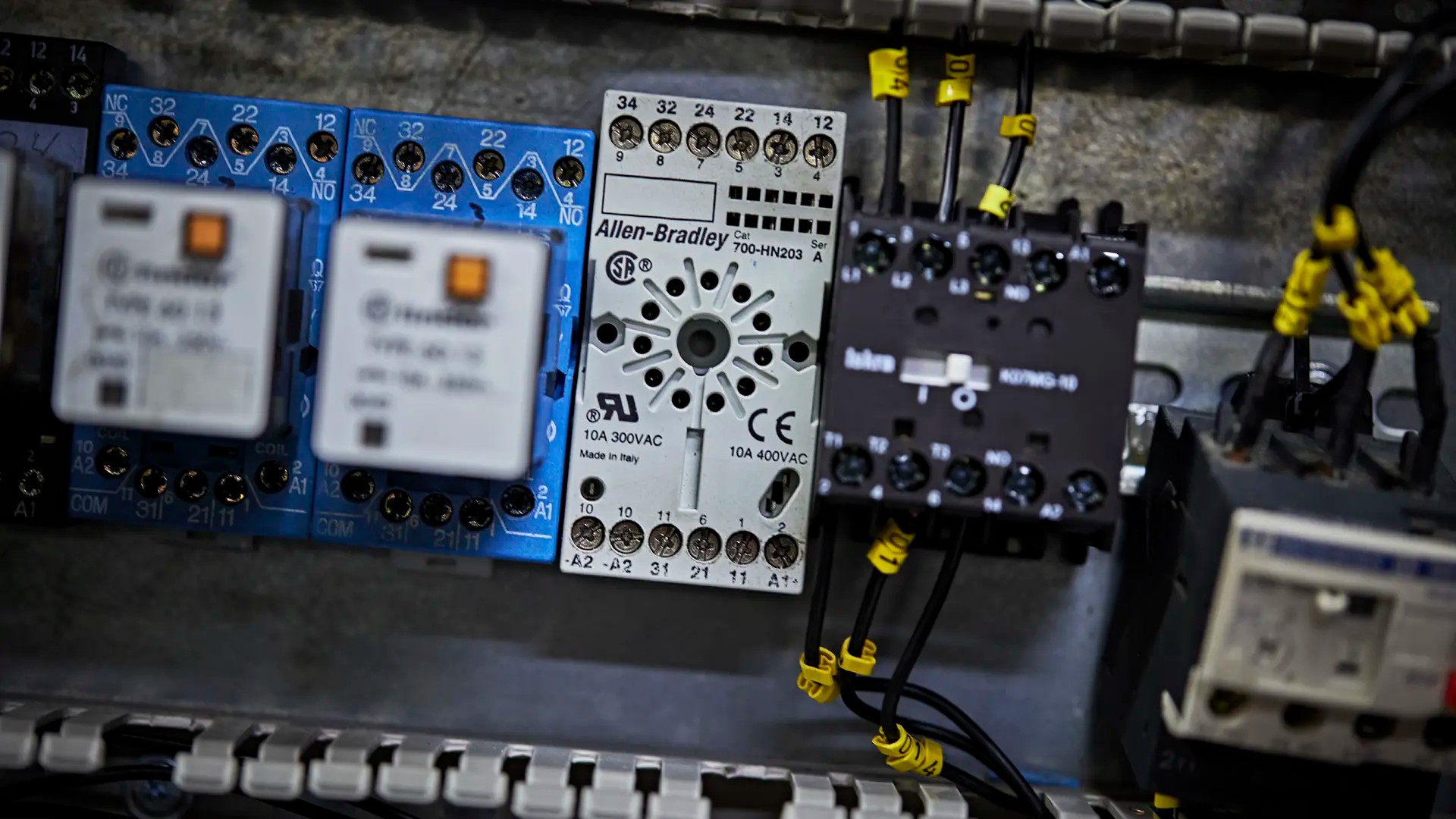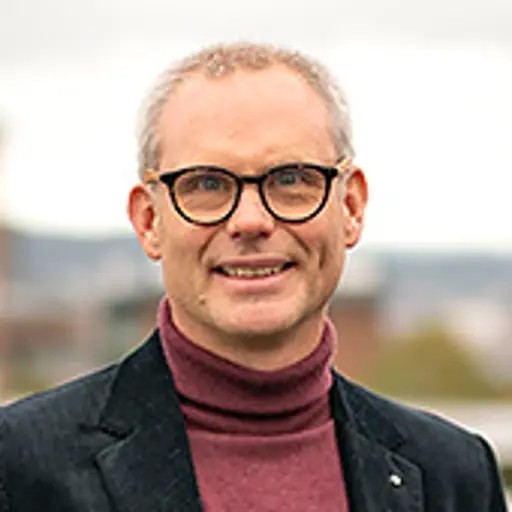
The spirit of open collaboration at the CPC brings together researchers, industrial actors, and the public sector to contribute to a climate-neutral future.
“The research conducted here has helped Sweden to move from dependence on oil to establishing an extensive district heating sector based on biomass”, says Henrik Thunman, who has overall responsibility for the CPC and is the Head on the Division of Energy Technology at Chalmers.
At the CPC, heat and cold are produced in sufficient amounts to cover all the needs of Chalmers buildings. In addition, electricity is distributed to the Chalmers Campus area. At the same time, world-leading research on an industrial scale is conducted in the areas of fluidized bed combustion technology, oxyfuel combustion, and biomass gasification. This research affects many people. Of the total amount of heat produced in the Swedish district heating networks, a very large proportion comes from combustion in fluidized bed boilers.
“To conduct research on an industrial scale at a university is very rare, not only in Sweden but in the world. It enables industry to benefit from the results right away”, says Henrik Thunman.
Scientists can take on major issues, such as making the transition to a fossil-free fleet of vehicles that uses biomass.
“We want to help by developing facilities that are as efficient as possible and by developing new technologies and processes. As scientists, we see a direct connection with what we can actually influence. This is a powerful motivator”, says Henrik Thunman.
The partnership fosters strong research and successful companies
The long-standing co-operation between the CPC, Chalmers, Göteborg Energi, E.ON, Akademiska Hus, and Valmet has had several positive effects. One example is that the development of the fluidized bed technology has taken place in northern Europe, in Sweden and Finland. This in turn has contributed to strong and successful companies, such as Valmet, Foster Wheeler, and Alstom, who are the major producers of this fluidized bed technology for the world market.
The existence of flexible and appropriate equipment at CPC enabled researchers to examine very early those issues that are currently being studied across Europe, for example co-firing, whereby different biofuels are mixed with coal and combusted. Research at the CPC has also played a crucial role in Göteborg Energi's initiative regarding the gasification of biomass (GoBiGas).
Performing research on one's own terms
In 1981, Göteborg Energi built the pipe that connects Chalmers University with the Gothenburg district heating network. An agreement was signed for the selling and buying of heat from each partner.
This has meant that researchers can carry out research on their own terms. They can carry out their research under desired stable conditions without being disturbed by the heat demand that follows the out-door temperature. So, excess heat is sold to Göteborg Energi. Deficits can be filled by purchase from this company, and the boiler can be operated at an even load.
Competitors with a common goal
“One of the most important reasons for its success is that the CPC is a neutral arena where competing companies can collaborate openly”, says Henrik Thunman. This means that one is able to look at issues and solutions that can be generalized and that can be used by many groups.
All the collaborating partners feel that there is added value in the fact that the CPC is not a purely commercial plant. Boiler manufacturers gain knowledge that they can use to build better boilers. Akademiska Hus and Göteborg Energi are customers who may want to buy and run this type of boilers. Therefore, they also need to have knowledge of the technology. The Swedish Energy Agency has money to invest in meaningful projects and Chalmers will produce the research.
“It is unique that three parties with essentially completely different motivations can work together and have a common goal, which allows the setting aside of short-term selfish interests. The key is good communication and mutual trust in each other”, says Henrik Thunman.
The research relates to current needs
Another important factor in its success is that the boiler that was built at CPC in 1989 is very flexible. Without having to make any major changes, the researchers can build on those hypotheses that address the needs of the community. Initially, the boiler was fired with coal, and later with biomass and co-firing of different fuels and waste.
More recently, the facility has been used to examine the production of gas from biomass. The work began with a relatively extensive renovation in 2007. A comparable stand-alone facility would have cost in the range of 100–150 million SEK to build. Thanks to the infrastructure already present at the CPC, the cost was only 13 million SEK.
Openness enables commercial opportunities
In the boiler, there many items of measuring equipment that enable researchers to analyze what happens in the processes to be investigated in a much more detailed way than can be achieved in other comparable facilities.
“Since Akademiska Hus and Göteborg Energi have been so open-minded, we have been able to exploit the flexibility of the boiler. If those in charge had chosen a different path and patented a technology, they would have managed to commercialize the research but they would have never been able to expand the project in the same way. We have created more commercial opportunities as a result of adopting a very open and flexible approach”, says Henrik Thunman.
The research provides a basis for difficult decisions
The work that surrounds the CPC is based on long-term relationships. Knowledge has flowed back and forth between Chalmers and the industry. Many of those who currently work at Valmet and Göteborg Energi have previously studied and conducted research at Chalmers.
“It is important that we know each other. In Gothenburg, there is also a long tradition of taking the lead which means that we take on new projects”, says Henrik.
Henrik Thunman is of the opinion that society should invest in and maintain a business such as the CPC, so that politicians and decision-makers take responsibility and have a reasonable basis on which to make the difficult decisions to move forward.
“For example, we created local goodwill that makes Göteborg Energi's investments in biomass gasification, GoBiGas, highly cost-effective. It is easy to build a demonstration plant that you operate for a while before it becomes too expensive to use. When it closes down, the accumulated knowledge becomes fragmented. Then the question is whether the investment was worth anything since it did not lead to something durable.
Dare to be innovative
Sweden has a long tradition of interactions between politicians and companies that are willing to take the risks.
“Without this tradition we for example would not have had the development of telephone exchanges. If we look at alternative means of transport, the question is who will develop them if society does not accept the responsibility”, says Henrik Thunman.
Open collaboration brings new ideas
“It's always risky to dare to be innovative and create something that is ahead of its time”, says Henrik. “Currently, our research is focused on gasification, which is likely to be an issue in a few years’ time.”.
“Therefore, we need rather large grants to keep the research program going. Otherwise, we end up in short-term projects and in testing, whereby the outside world dictates the issues based on the problems they have presently in their businesses, without creating any new research topics for us. Thus, our activities will stagnate and eventually die out.
So far, the work at the CPC has been successful.”
“It requires openness and network building so that there are constantly new ideas and a willingness to do new things. This is all about the fact that we are involved and listening and that the outside world sees us as a partner that they can approach with questions and discussions”, says Henrik Thunman.
Text: Ragnhild Larsson
